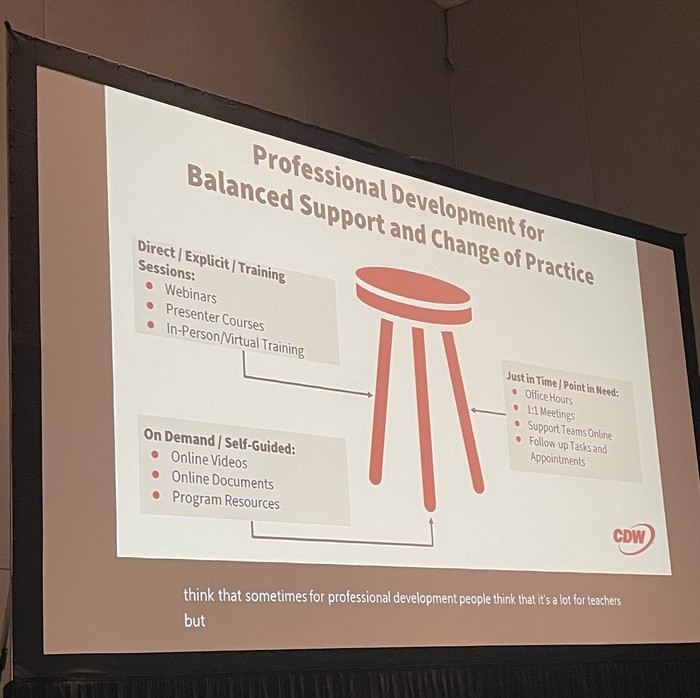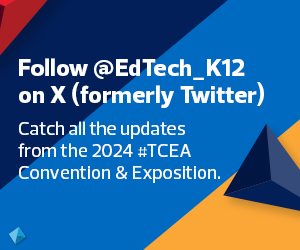The district truly saw the effects of its digital transformation efforts when the pandemic shut down in-person classes.
“We found out quickly that our middle schools were very prepared for online learning because they had the devices. But most important, they’d had the professional development to know how to use the platforms and digital content,” McClary said. As funding brought even more technology into Polk County Schools in the form of Chromebooks and interactive touch panels, district IT professionals knew that they needed even more support for tech integration.
“When we added all of those things to our district, we also realized what we had to add was support to go along with it,” McClary said.
“It’s so easy to buy technology and leave people to figure it out,” added Bell.
Teachers as a Resource for Continued Learning
The Polk County Schools IT team first heard about the Teacher Leader Academy from David Timbs, supervisor of secondary and instructional technology at Johnson City Schools in Tennessee.
“We were looking for something and throwing around different ideas when this idea of the Teacher Leader Academy came into our paths,” McClary said.
Bell said that the team contacted Timbs for insights as members worked out how to implement a TLA in Polk County Schools. “The concept that we had was about empowering teachers,” he continued.
KEEP READING: Teacher training can improve your device ecosystem.
From there, the district built out a program that runs as a two-year cohort consisting of two teachers from each school. These educators must attend five meetings over the course of the year, in which they lead professional development, have a voice in planning and share best practices. As part of the cohort, they also must commit to attending one ed tech conference per year. In return, they’re given stipends and have their travel expenses covered.
Teachers at Polk County Schools are so eager to apply for the Teacher Leadership Academy that Bell and his team are moving to a new application process for the next round of participants in which they don’t interview every candidate; there simply isn’t time.
Beyond sharing their knowledge in the five yearly meetings, these educators also support continued learning at their schools by bringing home knowledge from conferences.
The TLA model encourages teachers to continue learning and sharing tech tips, and it rewards educators for doing so.















